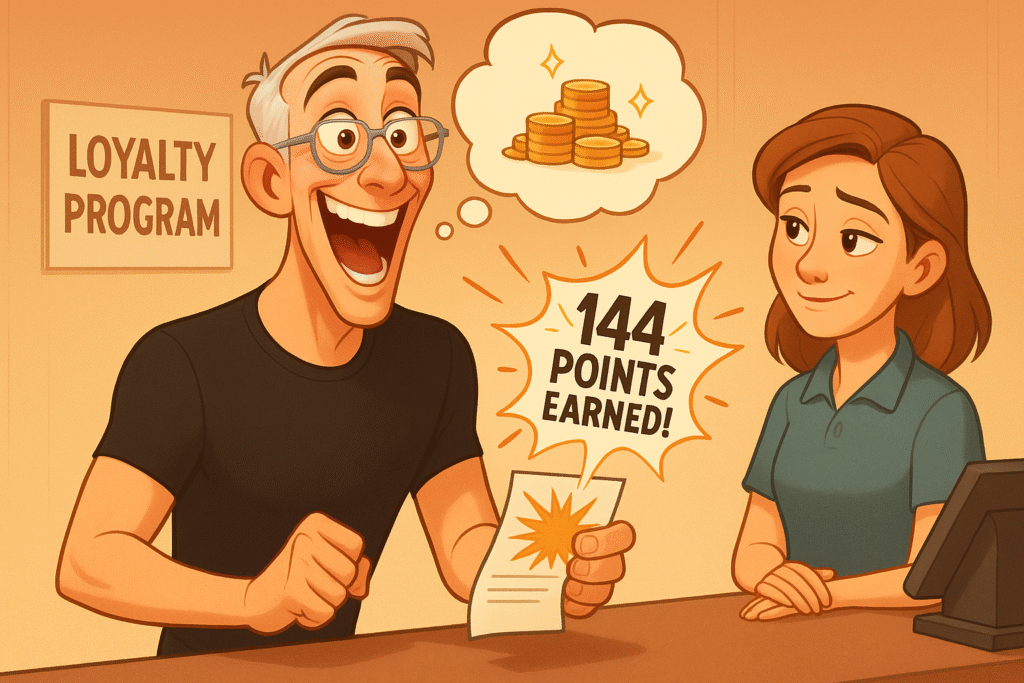
I just completed my occasional role as print production manager, sending some client brochures and a poster to a trade printer we’ve used for years.
While I’ve delegated the majority of production work for decades, I still handle these orders from time to time because I enjoy it.
It keeps me connected to evolving processes in ways delegation can degrade.
When I completed one of the transactions, a notification popped up: “Congratulations! You’ve earned 144 loyalty points!”
I knew from experience this equated to $1.44 in actual value.
Yet I felt a genuine surge of pleasure.
A win! I’d scored something extra!
This is embarrassingly irrational — and I’m far from alone in this psychological quirk.
At one grocery store chain, I’ve been accumulating points for over 20 years. The balance sits at a number high enough to sound impressive but converts to a discount so small it’s hardly worth the effort to redeem.
Yet I check that points balance on nearly every receipt. I feel a tiny dopamine hit watching it grow. And most tellingly — it actually influences where I shop.
I know this is silly. I plainly see and acknowledge the mathematical absurdity.
Yet it undeniably works on me.
In I Need That, I discuss how products that leverage our cognitive quirks create strangely powerful hooks. The genius of loyalty programs is NOT in the actual value they deliver
It lies in how they transform ordinary transactions into “winning” moments that trigger our reward circuitry.
Product Payoff: Starbucks revolutionized loyalty programs by transforming its system from transaction-based to engagement-based in 2016. Instead of simply awarding points for purchases, they carefully gamified the experience with levels, bonuses, and animated “star” accumulation.
Though the actual value remained similar, engagement with their app increased 80% within six months, driving an additional $2.56 billion in revenue. The success wasn’t from increased rewards but from tapping into our psychological need for achievement and progress tracking — even when the progress is toward minimal gain.
I don’t often use my “stars,” but get a feeling of imminent loss when I receive an email telling me they’re about to expire.
Action for today: Dig into your product experience for opportunities to create “winning” moments that trigger dopamine release. As with my examples, this doesn’t require expensive rewards — even small acknowledgments of progress, achievement badges, or visualized “accumulation” can create powerful psychological hooks.
Remember that humans respond more strongly to the perception of winning than to the actual value of what’s won.
Do you use a loyalty program you know is irrational but still influences your behavior?
Tap that reply arrow and tell me about your own psychological weakness for points, badges, or levels.
Or reach out to my team of behavioral economics experts at Graphos Product.
